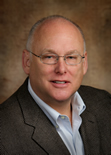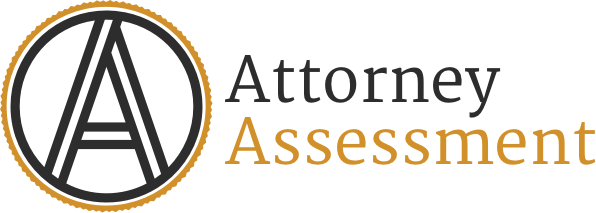Michael Robinson - Attorney Assessment Contributing Author

Michael Robinson
Michael Robinson is the founder of Career Planner, one of the oldest and most well established internet based career testing and life planning sites.More from Michael Robinson
Publications:
CareerPlanner.com is one of the oldest and most well established internet based career testing and life planning sites. We were established in 1997, and we went live with our first web site in 1998. We were one of the first to provide career testing over the internet.
Vision:
CareerPlanner.com is a company whose sole mission is to help people find their true purpose in life and to build more fulfilling and rewarding careers.
We provide online career testing, as well as free career and "Right Path" information to help individuals discover their true purpose in life and their ideal career.
We come at this mission with a perspective derived from years of hands on management and leadership experience which includes interviewing, hiring, training and coaching a wide variety of individuals. From this vantage point, we have gained an ability to see what types of work are right for a person, and what types of work an individual should avoid.
Bio:
Michael T. Robinson ( Myers-Briggs Type - INTJ), founder of CareerPlanner.com Inc. spent his early years growing up in Ohio and Michigan where he was infused with the traditional mid-west ethics of hard work and honesty. His mother was a professional athlete and his father was a metallurgist and self taught engineer. Thus, as Michael says, “When you’re a boy and your mother is better at sports than you will ever be, you go into science and technology like your father and his father before him.”
After earning a BSEE from the University of Dayton in Ohio, Michael moved to Arizona where he joined Motorola Semiconductor (now On Semi) as a product engineer. That gave him the hands on technical training to later join International Rectifier Corp where he would work for nearly 18 years and would become the youngest Vice President of Manufacturing, and ultimately a Vice President in Marketing and R&D.
It was at these high tech companies that Michael discovered he had three very unique passions and abilities: using his intuition and technical expertise to solve complex technical and business problems; creating great products; and knowing how to help people figure out what jobs and careers they would be best at.
It was at IR that Michael developed a reputation for creating new products and new businesses and for turning around manufacturing operations and businesses units across the globe. The VP of Human Resources at IR was fond of saying of Michael’s reputation, “Give it to Mikey, he can fix anything.”
At IR, Michael was fortunate to have great mentors, including the founder Eric Lidow and his two sons, Alex and Derek Lidow. It was Derek who inspired Michael to go into marketing and almost simultaneously it was Alex Lidow who put Michael in charge his own R&D / Product Development group.
Two other outstanding mentors for Michael were Keith Jackson (CEO of On Semi), who was Michael's boss at Fairchild, and Dale Lillard (of Landsdale Semi), who was Michael's boss at Motorola.
IR gave Michael the opportunity to work, travel, and hire people around the world. This included his first trip to China in 1995 when the streets of Shanghai had only a few cars on them. But it wasn't until Michael worked at Fairchild Semiconductor as a Vice President of their Analog Business Unit that he discovered how much he enjoyed working with the people in Taiwan, Hong Kong, Japan, and mainland China. Later as CEO of Qspeed Semiconductor, Michael was fortunate enough to travel to Asia, Japan and the Philippines nearly once per month for business.
When Michael joined Qspeed Semiconductor it was actually called Lovoltech. This venture capital backed start up had spent $36M and 5 years developing a a new type of power transistor. Within the first few months Michael discovered the product was selling at prices so low that the profit margins were around negative 66%. After personally talking to customers in Taiwan and China it became clear they were only using Lovoltech to leverage their main suppliers to drop price. The original investors were shocked as they had been told for years how good this technology was and how much of a cost advantage it had.
Closing Lovoltech was a strong possibility, but Michael had a back up plan he had been working on. While at a technical conference he had discovered a new trend where power supplies in computers, laptops, servers, and copy machines were being forced by government legislation to become more efficient so as to waste less electricity. Power supplies all around the world were being redesigned to boost efficiency up to 80% and then 85%. Believe it or not, some common power supplies were only 50% efficient, wasting half the electricity they used.
Michael conceived of the idea for the "Qspeed Diode," a component that when installed in most power supplies would boost its efficiency. The industry was already starting to use Silicon Carbide (SiC) diodes, but those were selling for $4 and they had a poor reputation for reliability. Michael knew his team at Lovoltech could achieve nearly the same performance with much better reliability by using silicon, and it would sell for $1 and make over 55% gross margin. Which it did.
Two long time friends and colleagues had joined Michael when the company was still called Lovoltech. Richard Francis became the CTO and Dave Gutierrez took over Product Engineering. This team then developed the Qspeed Diode and had it in production in under 12 months. Normally, something like this takes two years, but this team had pioneered ways to do very fast product development. The new sales team in Asia, which Michael brought on, began sampling customers and within a few months they had over 30 paying customers. Qspeed was later sold to Power Integrations.
When Michael left Qspeed in 2008, the world was entering one of the worst recessions ever, so he decided that rather than look for a job when most semiconductor companies were laying off, he would work on CareerPlanner.com, an online business he had created as a hobby many years earlier.
CareerPlanner offers tools to help people figure out what they want to do for a career. In 2004, while between jobs at Fairchild Semi and Lovoltech, Michael developed technology and search engine optimization (SEO) techniques that would bring in high volumes of visitors to the website. Using this technology, traffic grew from 700 visitors per day to up to 30,000 per day. With over 36% being international.
In 2009, Google took notice of this high traffic on CareerPlanner.com and contacted Michael, offering to assign a team to show him how to do a better job of monetizing his traffic. The results were spectacular. Later that year, Google wrote a case study on Michael and CareerPlanner.com. For the next two years, Google used CareerPlanner.com as an example in their advertising training classes which they took to major cities around the world.

